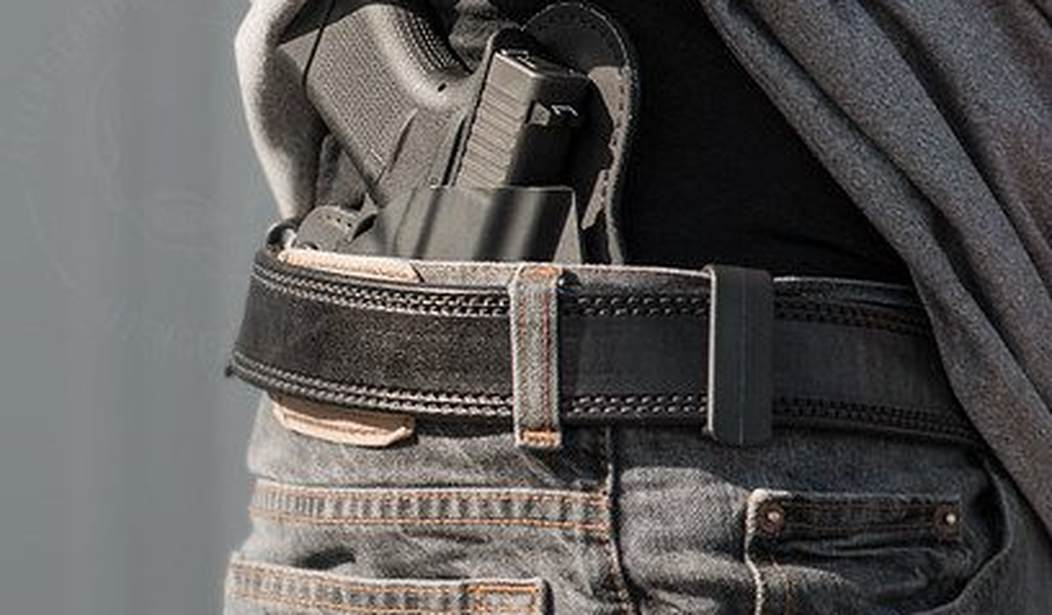The city of Honolulu, Hawaii is a city smack dab in the middle of what many people would consider paradise. It’s hard to disagree if you like tropical beaches or anything of the sort. However, if you want your Second Amendment rights respected, it’s no paradise at all.
The entire state is anti-gun and the city is knee-deep in that particular nonsense, as we’ve reported before.
And, as Cam noted on Tuesday, Honolulu officials were planning on holding a hearing about new rules for concealed carry. They wanted feedback.
Gun rights advocates swarmed Honolulu Police headquarters on Tuesday to object to how the department wants to regulate concealed handguns.
Scores testified at a hearing on proposed amendments to HPD rules that would allow concealed carry.
Since the U.S. Supreme Court ruled in June that citizens have a right to carry handguns in public for self-protection, the HPD has not issued a single permit.
…
The proposed amendments to the HPD rules include more training and proficiency tests, annual renewals as well and mental and health screening.
The crowd included several firearms trainers who have been helping local owners fulfill existing permit requirements, which include a mental health declaration, firearms safety course and a clean criminal record.
Many argued those were sufficient to ensure responsible gun ownership, and the new proposals were designed to discourage applications and delay the process.
The Law of Unintended Consequences is a thing. You can’t always see them, either, though one should always try to consider what those might be.
In this case, the unintended consequence of the Bruen decision is that it gave places like Honolulu a list of things they could get away with, and many places are actually using that as a guide to make it harder to get a concealed carry permit.
Tons of gun rights advocates were on hand, pointing out that this is really just an effort to try and discourage people from getting their permits. After all, among the problems is that it requires all of this annually. That’s right, the permit is only good for one year.
That’s a lot of headaches to go through year after year.
And that’s only part of it.
Others pointed out that the type of holster required by the rules as designed for law enforcement was difficult and even dangerous to use without training and would make it impossible to conceal the weapon.
Another common complaint: The difficult proficiency test, which includes unholstering and firing multiple rounds accurately and swiftly from several distances.
Critics pointed out that older people or those with disabilities, could not possibly pass the test.
“Inability to fire a pistol like an Olympic competitor does not make a person unsafe to carry a firearm,” said Joel Berg, who retired from the military.
OK, one thing at a time. First, the holster.
Many of us use a holster with passive retention. It holds the gun in place, but there’s nothing in the way of our ability to draw the gun except the fit of the holster itself.
In fact, many trainers suggest just this kind of holster–though they specify it should be a snug enough fit that it won’t fall out.
What Honolulu is considering is requiring a holster with a more active retention method. This is something like a thumb break or, God forbid, the Serpa’s button. Those are definitely dangerous.
Understand that passive retention holsters are used all over the nation without issue. Hell, many states don’t even require retention and we don’t see a huge problem with guns just falling out all over the place. Honolulu PD apparently doesn’t require these kinds of holsters for plainclothes officers, either. This is a non-issue, but it allows Honolulu officials to, again, try and discourage people from carrying. After all, why bother if you’re unlikely to be able to draw it in a timely manner?
This brings us to problem number two, which is the proficiency test.
Since this involves drawing from an active retention holster and firing accurate shots at multiple distances, it looks like this is a test designed to fail people. The active retention aspect will slow down the draw, making it harder for some to pass the test.
But maybe it’s not.
Yet as Mr. Berg said above, you don’t need to be an Olympic shooter to be able to defend yourself. Sure, having a high degree of accuracy is desirable–ask the folks who were at Greenwood Park Mall, for example–it’s not a major problem if someone can’t make a shot at a certain distance.
I think people should know their limits, mind you, but that’s for the range, not for Honolulu officials to enforce.
All in all, I’m not a fan of these rules and I agree with those who think this is nothing more than a way to keep people from getting their permits.
Thankfully, because of the outpouring of opposition, it looks like many members of the Honolulu City Council aren’t eager to adopt these proposed restrictions. Cam will have more on that in a post coming up later today.









